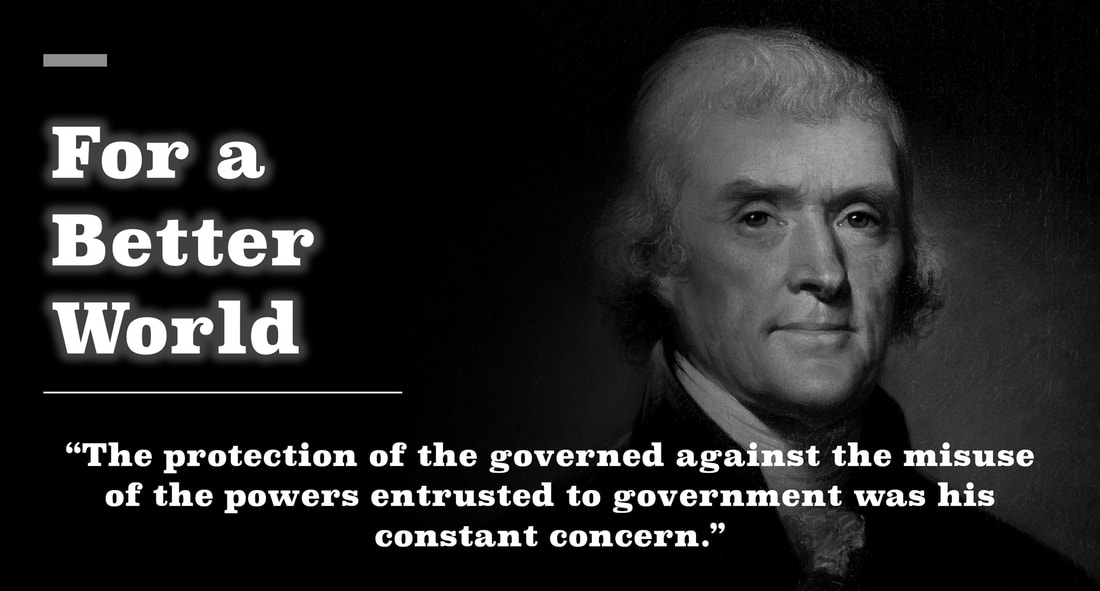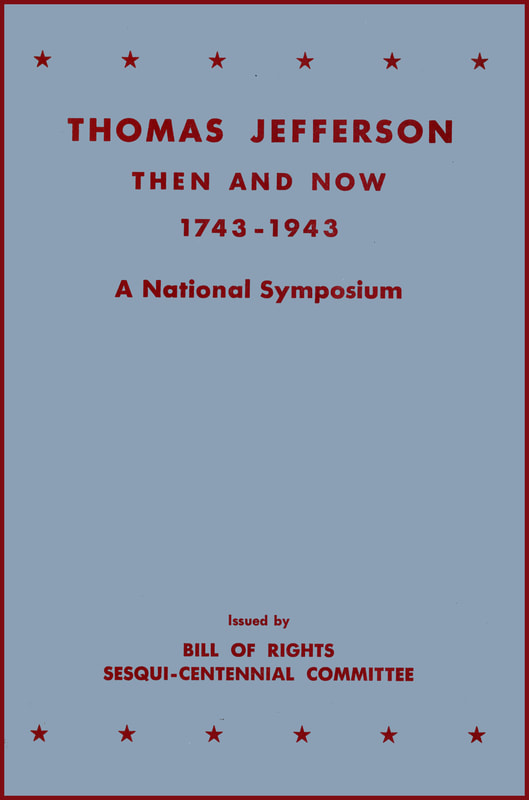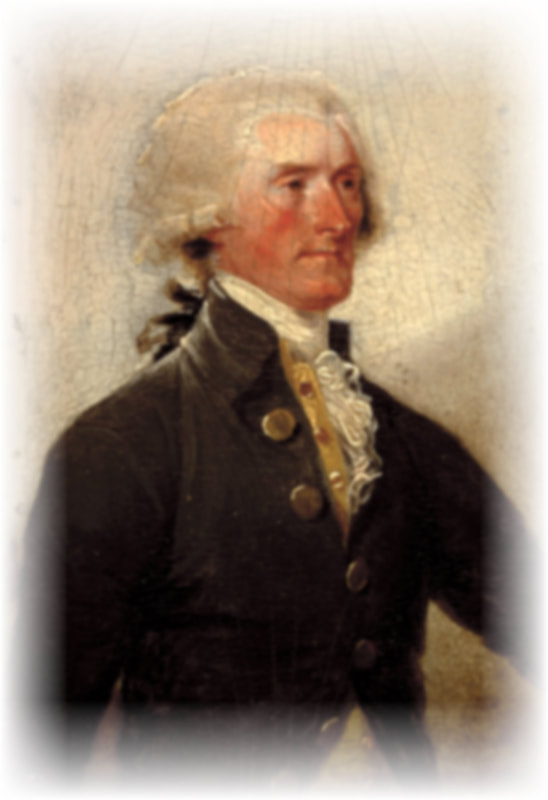The Thomas Jefferson Sesqui-Centennial
Thomas J. Watson Sr.'s "For a Better World"
Introduction
|
April 13, 1943 marked the 200th Anniversary of Thomas Jefferson's birth. Author of the Declaration of Independence and spiritual father of the Bill of Rights, Jefferson was the architect of American liberty. His words and deeds shine brighter with each passing year. The book "Thomas Jefferson: Then and Now 1743 - 1943" was published in 1943 during World War II. It was a collection of short articles by men and women of the day in honor of Mr. Jefferson.
Some of the contributors were: Stephen S. Wise, President, American Jewish Congress; Walter White, Secretary, National Association for the Advancement of Colored People (NAACP); Eleanor Roosevelt; Ruth Bryan Owen Rohde, Former United States Minister to Denmark; Sam Rayburn, Speaker of the House of Representatives; Frances Perkins, United States Secretary of Labor; and many others. |
The following was Tom Watson Sr.'s contribution to the anthology about Thomas Jefferson.
Thomas J. Watson Sr.'s "For a Better World"
|
Thomas Jefferson in the stirring times which saw the birth of our nation, stood in the forefront of those who gave us our democratic way of life.
A gentleman in the service of Virginia, a statesman given to the study of every branch of the learning of his day, having a knowledge of French, Spanish and Italian, as well as of Latin and of Greek, no more cultivated mind, no broader experience of men and their affairs, no clearer vision, was ever brought to a higher task. A leader in the successful movement to secure a humanitarian revision of the harsh penal code of his day, he gave to Virginia her statute for religious freedom. The founder of the University of Virginia, he was the first American statesman to give to education its true place in our free society. The author of our Declaration of Independence, he has won an outstanding place in American history for his many contributions to our country's progress, both as distinguished citizen and during his two terms as President of the United States of America. |
The protection of the governed against the misuse of the powers entrusted to government was his constant concern. He saw clearly that what had been attained in the past must be preserved for a future and a better world. The preservation of ancient and accepted ways, so that they might serve to guard the human rights he had declared to be inalienable, was Jefferson's contribution to making the aspirations of his age into the living reality we have so long enjoyed.
It was Jefferson who recognized that each one of us has his own life to live, and that none can divest us of that responsibility—that our equality in that responsibility is of such supreme importance as to carry the true meaning of human equality to all free men. It was his uncompromising faith in his fellow men that led him to place his trust in the righteous and unerring judgment of our free and sovereign people.
In this hour, when we are waging total war lest this people perish, it is the Jeffersonian tradition which has given us the vision that not only free men, but free nations also, have achieved their freedom in order that they may cooperate in preserving their heritage for the generations to come.
It was Jefferson who recognized that each one of us has his own life to live, and that none can divest us of that responsibility—that our equality in that responsibility is of such supreme importance as to carry the true meaning of human equality to all free men. It was his uncompromising faith in his fellow men that led him to place his trust in the righteous and unerring judgment of our free and sovereign people.
In this hour, when we are waging total war lest this people perish, it is the Jeffersonian tradition which has given us the vision that not only free men, but free nations also, have achieved their freedom in order that they may cooperate in preserving their heritage for the generations to come.
Thomas J. Watson Sr., "For a Better World"


